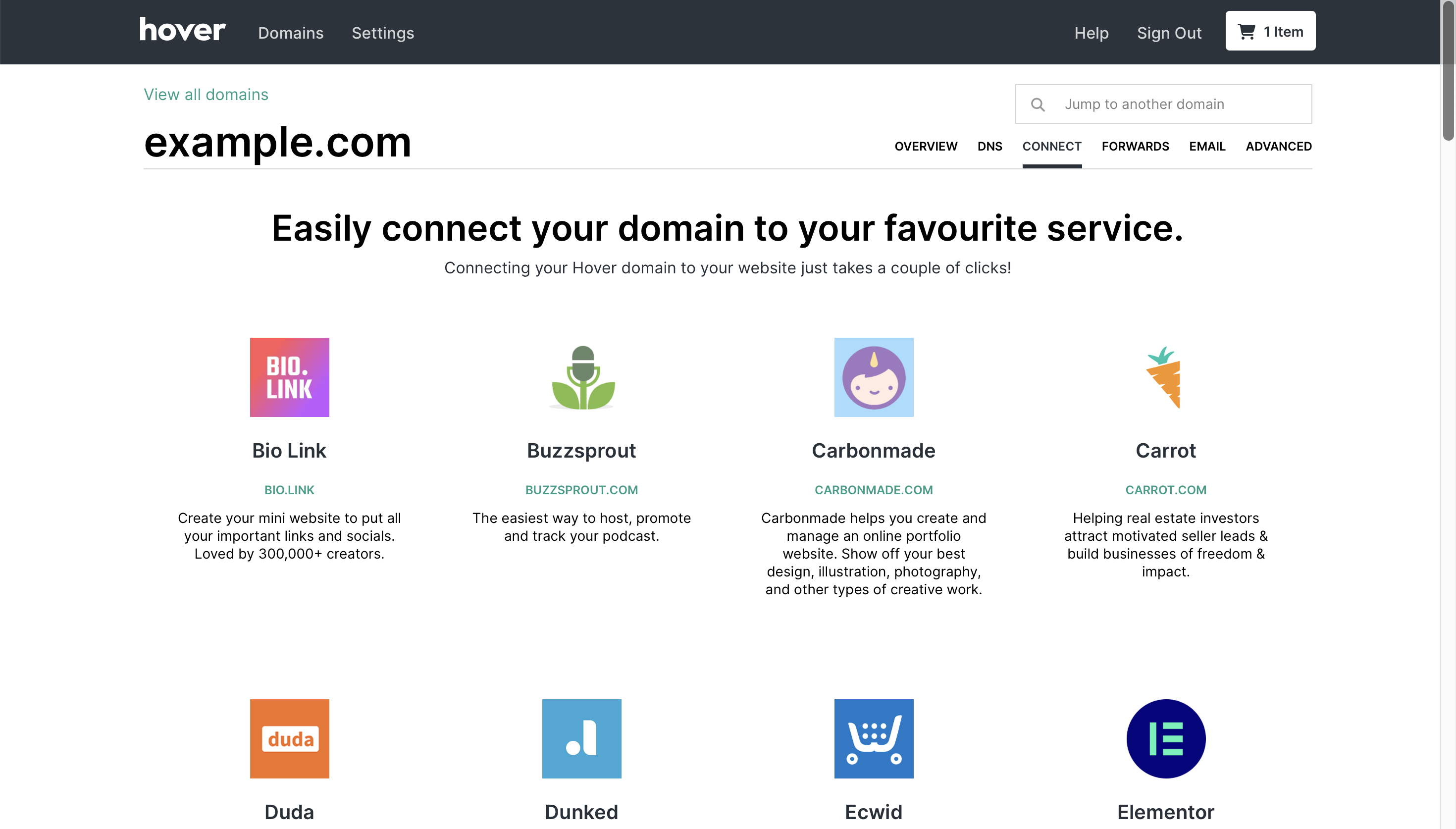Here are some helpful tips and suggestions on where to purchase a domain. Plus, learn how to choose a domain name that will be effective and SEO friendly for your business:
How to Choose?
There are many things to consider when purchasing a domain name; however, we don’t recommend choosing domain names based just on SEO.
Domain names themselves have a very small impact on SEO, and we don’t generally recommend using keyword-specific domain names because they tend to be rather long and aren’t always great for building credibility.
Rather, we recommend choosing domain names that are easy to read and will help boost the credibility of your business, both online AND in the real world.
Tips for choosing a domain name:
- Keep it simple and memorable
- It should be easy to type, spell, and pronounce
- Avoid dashes, hyphens and numbers
- Avoid trademarks or competitor names
- Avoid vague or generic options
- Stay on brand and use your company name
- Including keywords related to your business or your location can be a good thing – but not required
- Go with .com or .net
Does my domain name matter in SEO?
Your domain name isn’t a direct Google ranking factor. However, creating a strong brand for your business and having a memorable domain name can indirectly affect SEO.
Some other useful suggestions to think about
Most buyers and sellers will resonate with a domain name that has the action they are looking to take. For example, you will see a lot of real estate investor sites with domains such as:
SellMyHouseFastDenver.com– this is a keyword, short, easy to spell, and gives the actionRichardBuysHouses.com– this relays who you are and what you doKindHouseBuyers.com– this is company-specific and tells what you do
ℹ️ Via Moz: How to Choose a Domain Name →
Where to Buy?
For automatic configuration done for you…
Buy your domain from Hover
Since Hover is set to automatically connect DNS records for any Carrot sites, setup takes a few minutes with minimal hassle on your part. We highly recommend going this route to save you time and effort.
- Fast, easy DNS records setup, automatically applied to your site
- No annoying upsells
- Easy to use, real support
- Free Who-Is Privacy (this hides the domain owner’s personal contact info)
- We have helpful tutorials showing you how to connect your Carrot site

Bonus:
If you do go with Hover, we have a Hover Domain Setup tutorial for you. It will guide you on how to properly connect your existing Hover domain to your Carrot site and how to also connect a new account with Carrot’s 10% discount applied. You can find that here.
Affiliate Relationship Disclaimer: While our recommendations of Hover and Namecheap are based on our experience and success with their services, Carrot is an affiliate partner with Hover and Namecheap and may receive compensation for referrals via links on this page.
For straightforward setup with good support…
Buy your domain from Namecheap
Namecheap is another domain registrar we like to recommend. They make it easy to find and purchase your domain name. In addition, here are a few other benefits of buying with Namecheap:
- They have an easy to navigate backend
- Their support is awesome
- They suggest alternative domains when yours is taken
- They allow email forwarding
- We have helpful tutorials showing you how to connect your Carrot site
What to Avoid When Choosing a Domain Host
Carrot is a webhosting platform – we provide and host a site for you, but we do not provide or host domains. Generally speaking, when choosing a domain host, you want to go with a company that primarily focuses on domains. There are other webhosts out there that provide domains with their sites such as Wix, Squarespace and WordPress. These webhosts typically want you to use those domains with their websites, not websites with other webhosts.
We do not recommend purchasing domains from these webhosts to use on Carrot, because the configuration, propagation and general user experience isn’t up to par. Those webhosts are setup to provide domains for websites on their platforms. We ultimately recommend using one of the domain hosts listed above!
New to Carrot?
Welcome!

Here’s our full guide for what to do when getting started with your Carrot website:
Want Us to do Some
Editing for You?

You are busy doing what you do best, running your business. Leave the site work in Carrot’s hands.

